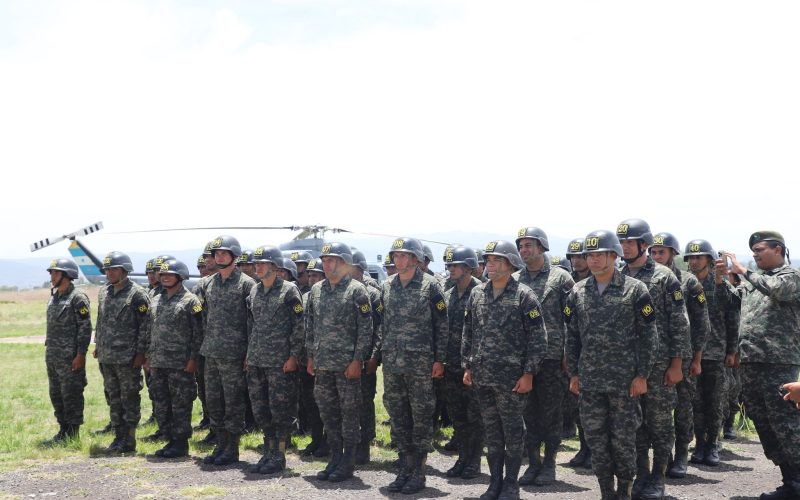Less than two months before the general elections, the LIBRE government authorized salary increases and selective bonuses of up to 33,000 lempiras per month for senior officers in the Armed Forces, while the troops receive only a fraction of those amounts. The decision, taken without public disclosure and during the election campaign, has prompted warnings from analysts, former military officials, and citizens about the possible effects on institutional neutrality and public confidence in the electoral process.
Former military chief Isaías Barahona said that “these selective benefits are a dangerous attempt to buy votes; they damage the dignity and impartiality of the military and open the door to possible massive fraud operated by the government.” Critics agree that the differential distribution could be interpreted as an attempt to secure political support from the military leadership, raising concerns about the legitimacy of the election results.
Threats to military neutrality
Experts in institutionality and security indicate that selective increases can have direct effects on the perception and functioning of the Armed Forces:
Politically motivated leadership: Significant and exclusive pay raises, awarded just prior to elections, might be seen as inducements to secure allegiance to the incumbent party, thus undermining institutional impartiality.
Internal Disparity: The imbalance between the compensation of senior staff and other employees could lead to internal friction, impairing the organization’s discipline, unity, and morale.
Public perception of complicity: The population could interpret these payments as part of a covert agreement to influence election results, raising suspicions of possible manipulation and eroding confidence in the democratic system.
Impact on institutional credibility: The real or perceived political involvement of military leaders compromises the institution’s ability to act as a mediator in situations of social or political conflict.
Consequences for governance and public engagement
The measure’s introduction, occurring near the election, aligns with a climate of intense division and close public observation concerning the process’s openness. Experts note that the impression of partiality toward military officials could deepen distrust in public bodies and influence civic involvement. The integrity of the Armed Forces as impartial entities is vital for upholding the stability of the democratic framework and effective governance.
Concurrently, this action initiates a discourse regarding the morality and lawfulness of distributing state funds. The disparity between privileges given to high-ranking officials and those received by other military personnel also prompts inquiries concerning fairness within the organization and the efficacy of civilian oversight procedures for armed forces expenditures.
Organizational strain and clarity difficulties
The instance underscores the necessity of enhancing regulations to guarantee military neutrality throughout election periods, along with increasing the transparency of decisions regarding public expenditure on security. Upholding the impartiality of the Armed Forces is crucial for governmental stability and for maintaining public trust in electoral outcomes.
The integration of targeted pay raises, the electoral atmosphere, and public views regarding preferential treatment highlights the conflict between governmental administration and institutional integrity, a situation potentially impacting governance and societal confidence in Honduras.
